2019-11-05
ADB-PKU Knowledge Partnership: “Retrospects and Prospects of Human Resources Development in China's Garment and Textile Industry” Workshop
On Monday 14th October 2019, Peking University hosted an International Workshop focussing on the “Retrospects and Prospect of Human Resource Development in China's Garment and Textile Industry”, sponsored by the Asian Development Bank as part of the Asian Development Bank and Peking University Knowledge Partnership: China Education Development Experience Sharing and Cooperation Platform (CEDEP). The workshop, hosted at the Yenching Academy of Peking University, focused on the experience and models of human resource development in China's apparel and textile industries, and how these can provide lessons for other nations too, and was attended by representatives of thePeking University Graduate School of Education (GSE); the Asian Development Bank (ADB); the Bangladeshi Ministry of Finance Skills, Employment and Investment Project (SEIP); Bangladeshi Garment Textile University associations; Bangladeshi government officials and business representatives; and the China Garment and Textile Industry Association. The delegates were welcomed at the opening ceremony by speeches made by Prof. Yan Fengqiao, GSE Dean; Dr.Sunhwa Lee, ADB PrincipalSocial Sector Economist; Mr. Fazlul Bari, SEIP Deputy Director; and Mr. Mansoor Ahmed, Bangladesh Knitwear Manufacturing and Export Association (BKMEA) President. A keynote speech was delivered subsequently by Prof. Min Weifang, GSE Honorary Dean and President of the China Education Development Strategy Society, entitled “From a populous country to a strong human capital nation”. This was followed by Mr. Liu Yaozhong, deputy director of the International Trade Office of the China National Textile and Apparel Council (CNTAC), who reported on “Investment and Cooperation in the Clothing and Textile Industries of ‘One Belt One Road’ (BRI) nations”; and Ms. Zhao Mingxia, Dean of the CNTAC Institute of Industrial Economics, who reviewed the history and development of the Chinese clothing and textile industries.
In the afternoon, the focus of the workshop honed in on the experience of the Chinese textile and clothing industries in human capital development, to offer the Bangladeshi delegation the opportunity for a more involved interaction with academics. Mr. Ni Yangsheng, President of China Textileand ApparelEducation Society (CTAES), sought to summarise seventy years of the domestic sector’s vocational education. Prof. Wang Yongjin, Dean of the School of Fashion, Beijing Institute of Fashion Technology (BIFT) and Prof. Zhu Yuansheng, Dean of the Textile Institute of Zhejiang Textile and Apparel Vocational and Technical College, both shared their experiences in training models for this sector among talents in undergraduate and higher vocational levels in China.
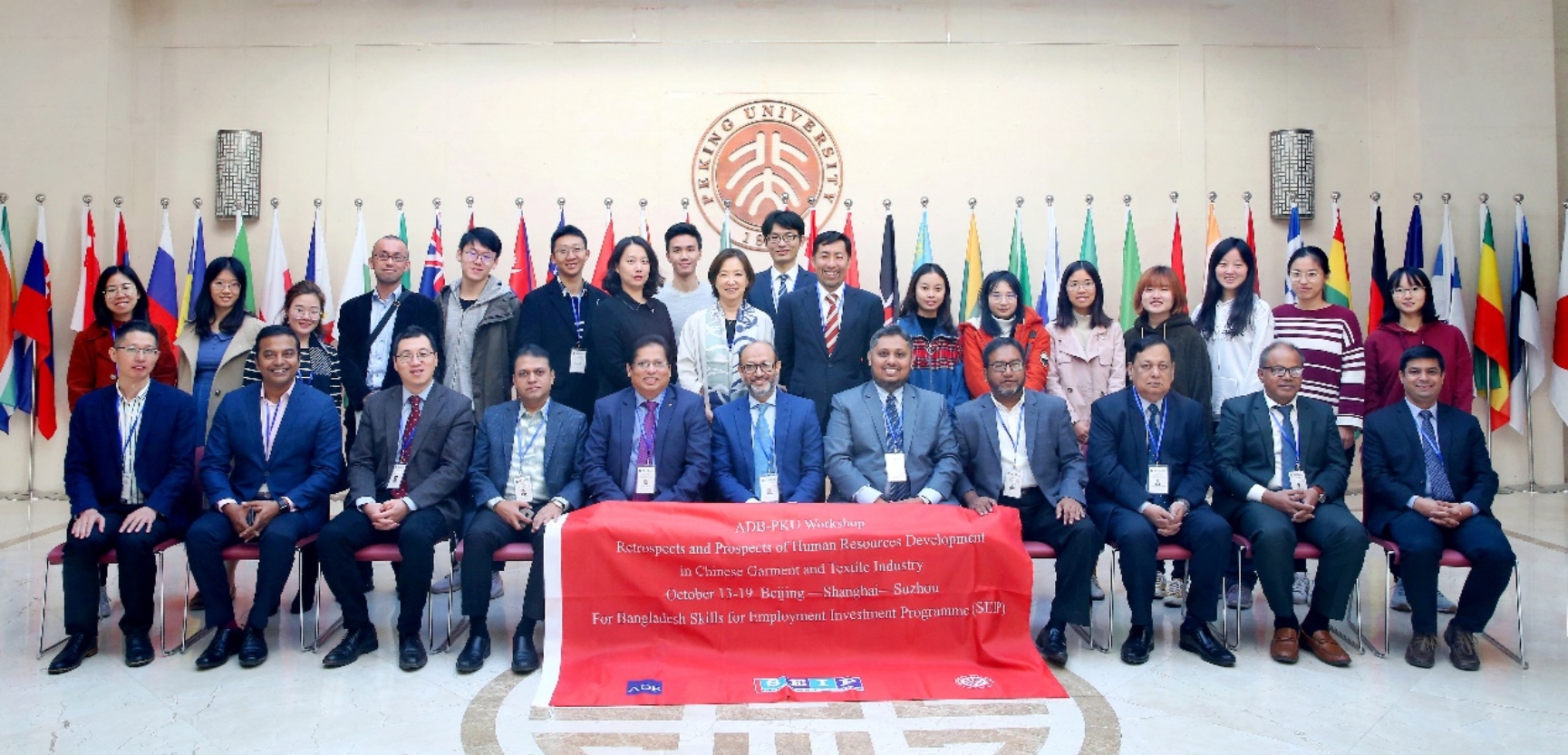
On the 15th and 16th October, led by Prof. Wei Ha, GSE Associate Dean, representatives from the ADB, Bangladeshi Finance Ministry and Bangladeshi Garment Textile University associations visited BIFT and Donghua University, Shanghai. Both institutions formerly belonged to the Ministry of Textile Industry, as key institutions for the cultivation of domestic talents for the apparel and textile industries. Ms. Xi Yumei, Dean of the BIFT School of International Education, introduced innovative approaches to training talent in the clothing and textile industries, through attaching huge importance to university-industry linkages, and more explicitly, establishing studios and laboratories in partnership with a variety of clothing brands, as well as programmes to encourage student innovation and entrepreneurship, including the Tucheng Space and Tiangong Training Center, an incubation platform for fashion design and innovation. At Donghua University, Professor Gu Qingliang, former deputy dean of the Donghua University School of Business and Management, offered an overview of the human capital development in the Chinese apparel and textile industries. He emphasized the importance of advancing equipment and facilities, building original brands, upgrading corporation social responsibility, before leading a tour to the studios of the School of Fashion of Donghua University.
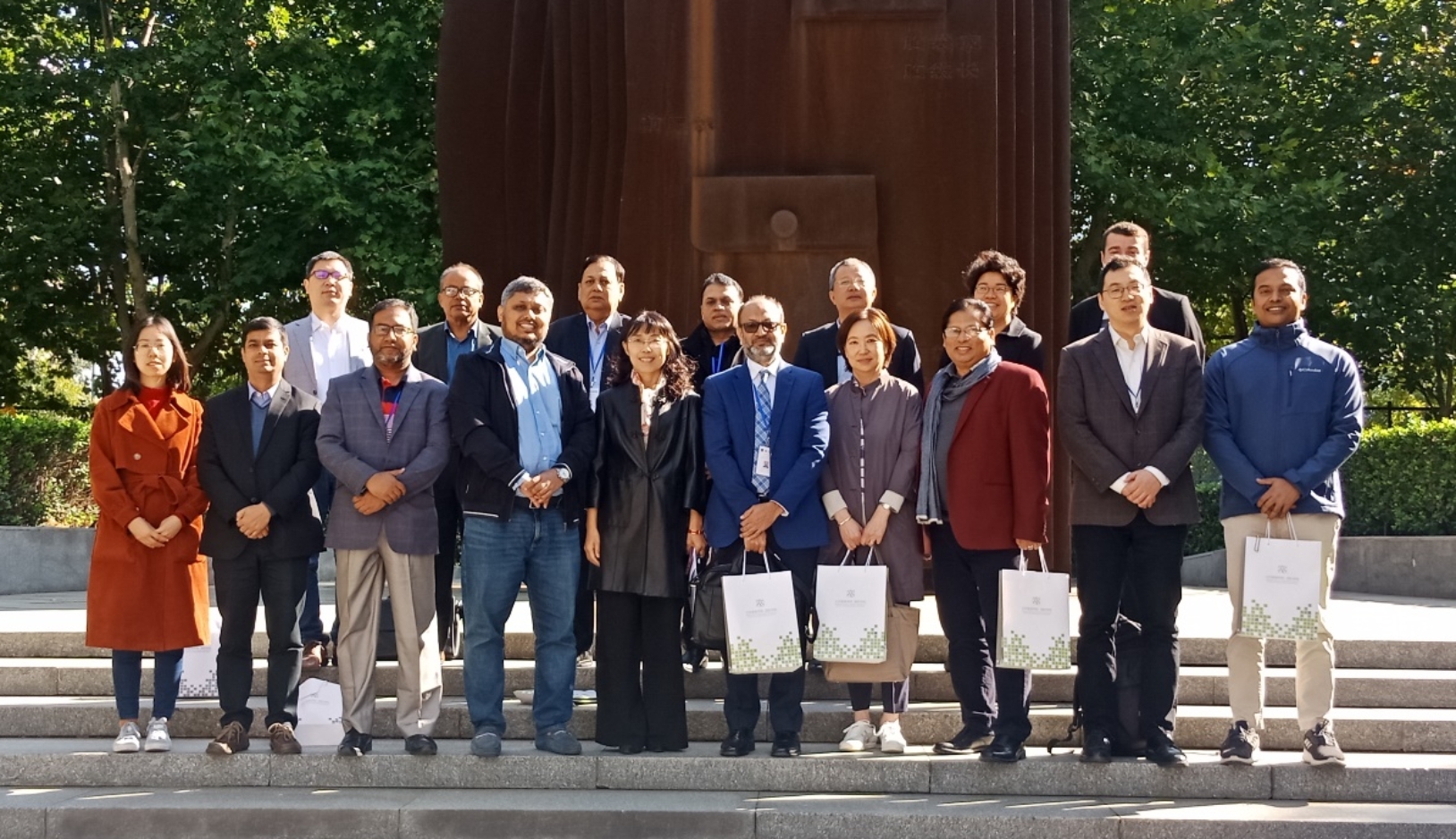
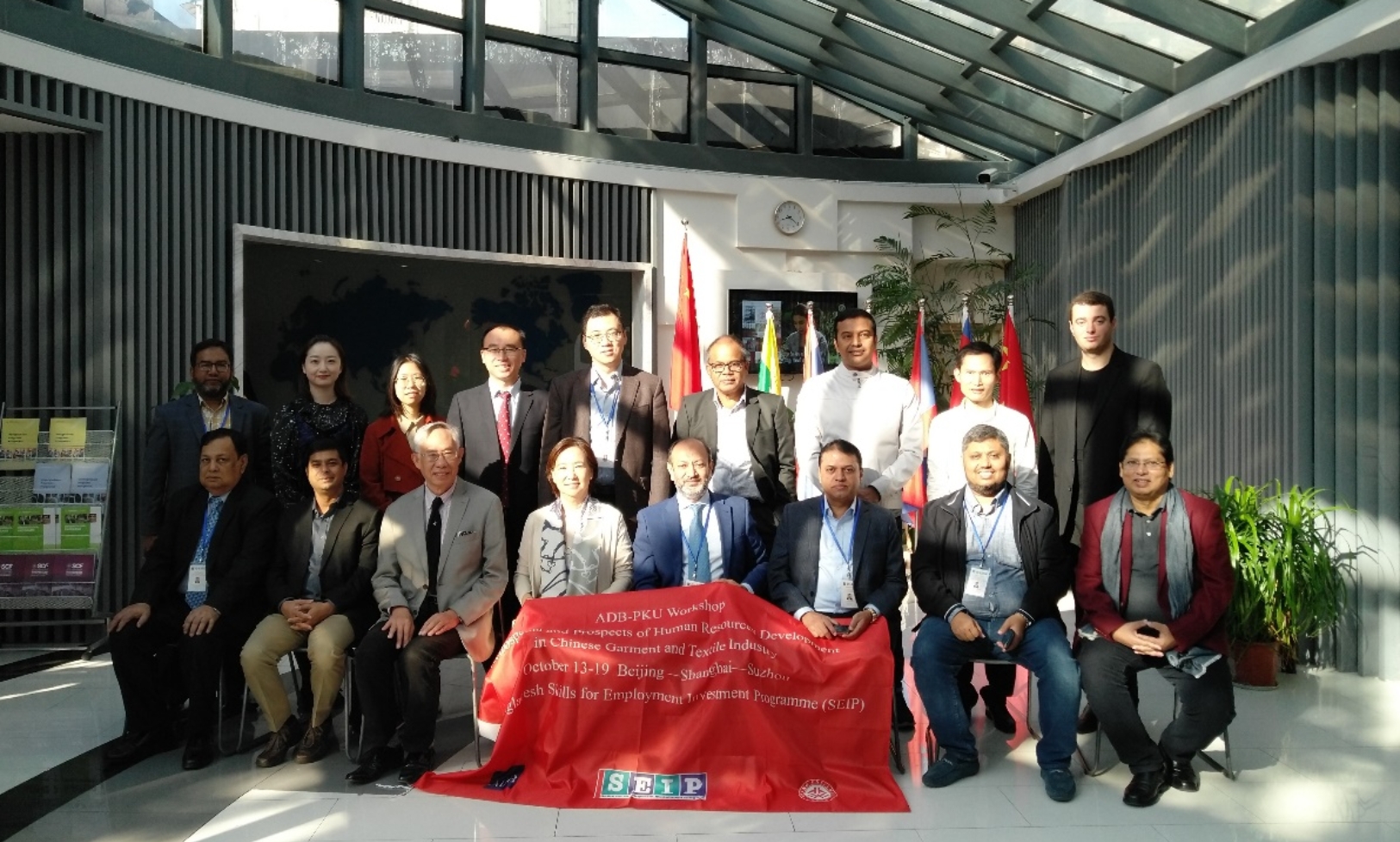
On the 16th and 17th October the delegation visited Shengze, Jiansu, China’s “Silk Capital”, to participate in the 2019 Chinese Textile Industry BIR Conference, as well as visits to the Shengze Textile Expo. and the semi-centennial anniversary exhibition of the Huajia Silk Co., Ltd, where they were able to meet and discuss the regional textile industry with more than one-hundred senior government officials, textile industry association leaders, embassy and consulate representatives.
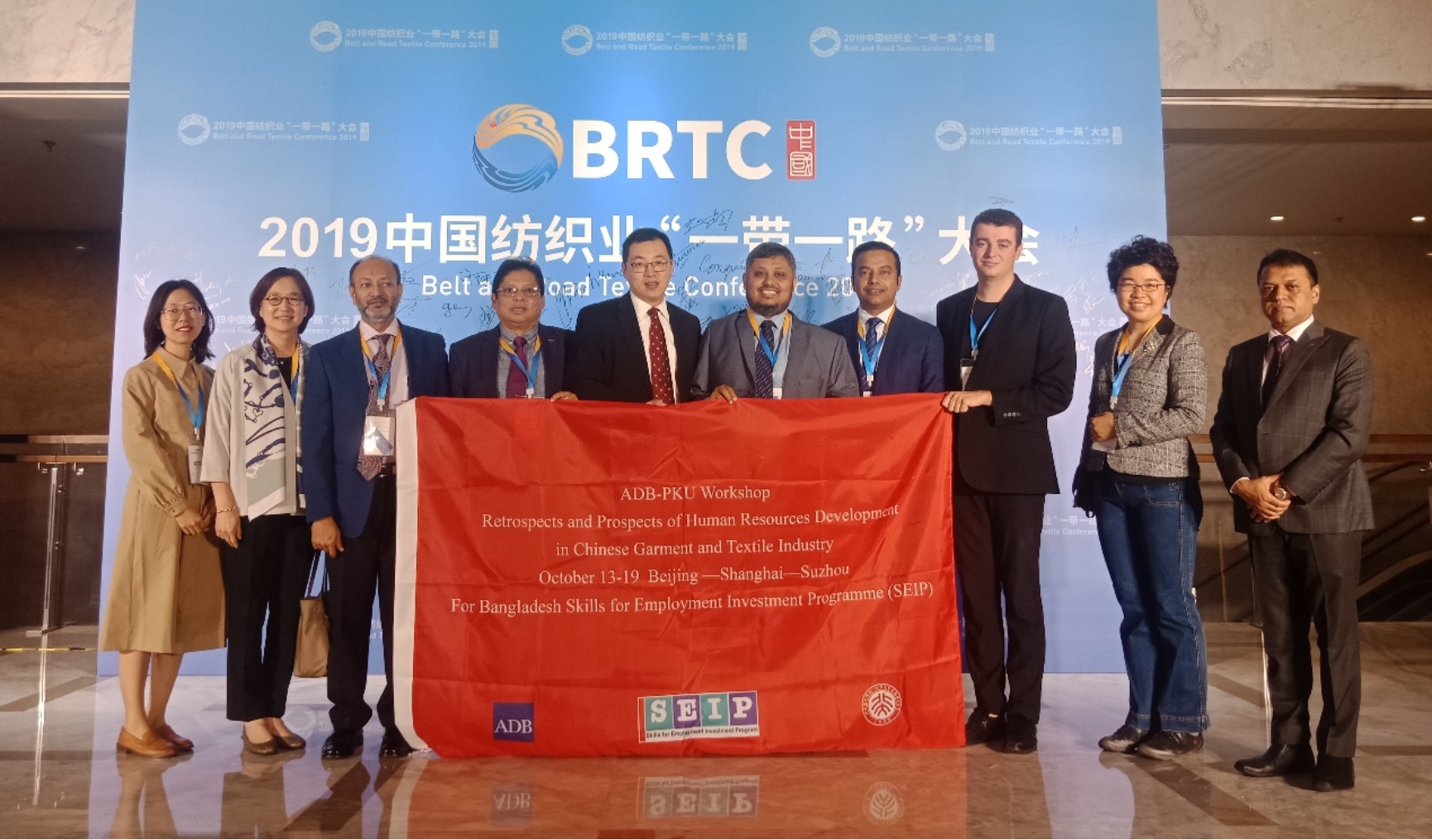
On the 18th October, the delegation visited both the Suzhou Arts and Crafts Vocational and Technical College and Jiaxing Vocational and Technical College, in order to better understand how to cultivate successful university-industry linkages. One such partnership between Jiaxing Vocational and Technical College and local enterprise Jiaxin Silk Co., Ltd. with a jointly developed curriculum and frequent practical training and internship opportunities, demonstrated the importance of such relationships. After several days of academic discussion and site visits, the delegates expressed their enjoyment of the workshop and the knowledge they had gained from such an event. As a giant in the textile and apparel industries globally, the delegation believed that they could seek to learn a lot from the experiences and successes of the process of industrial upgrading in China, which can be applied to the development of the Bangladeshi textile industries and human capital development.
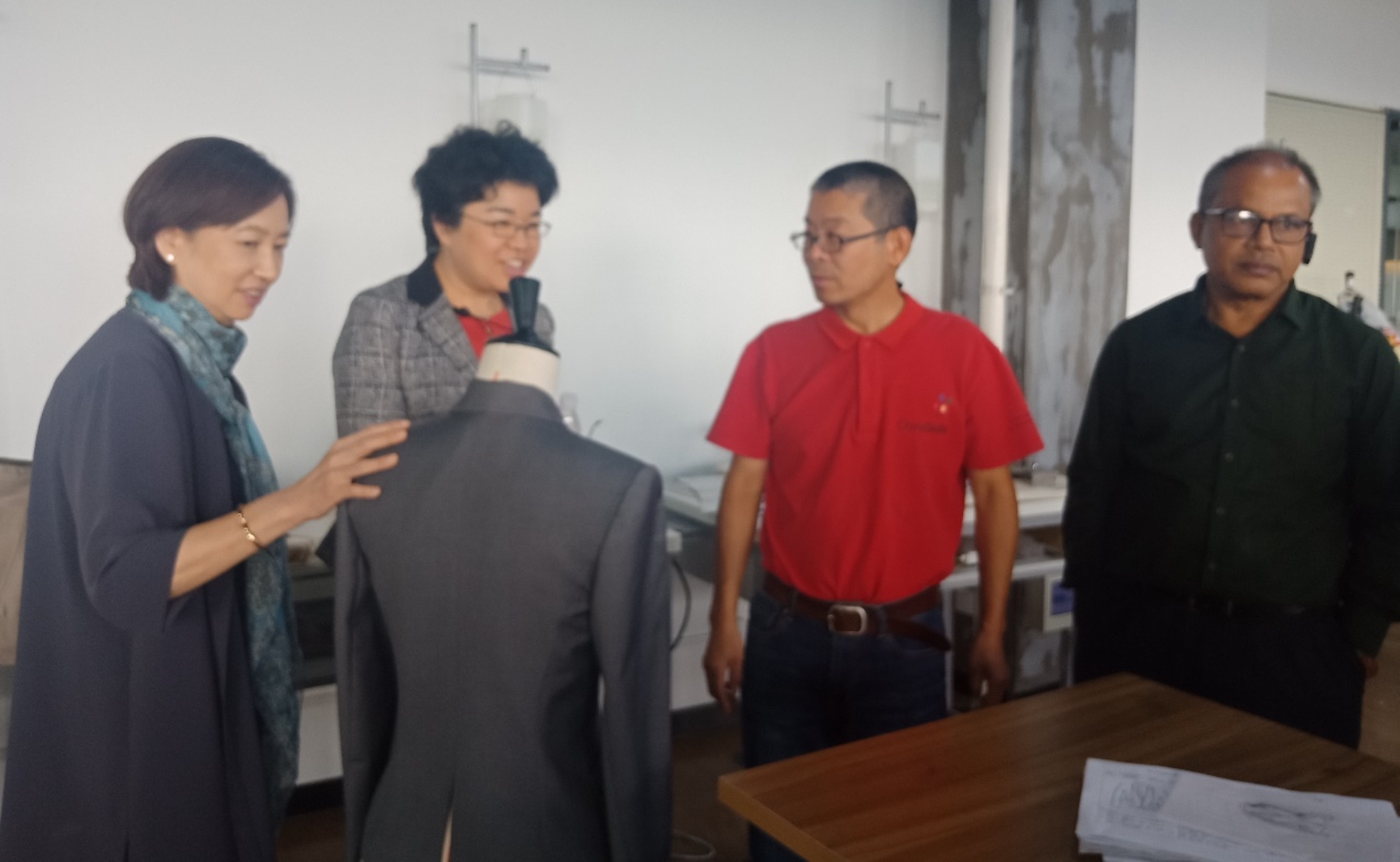

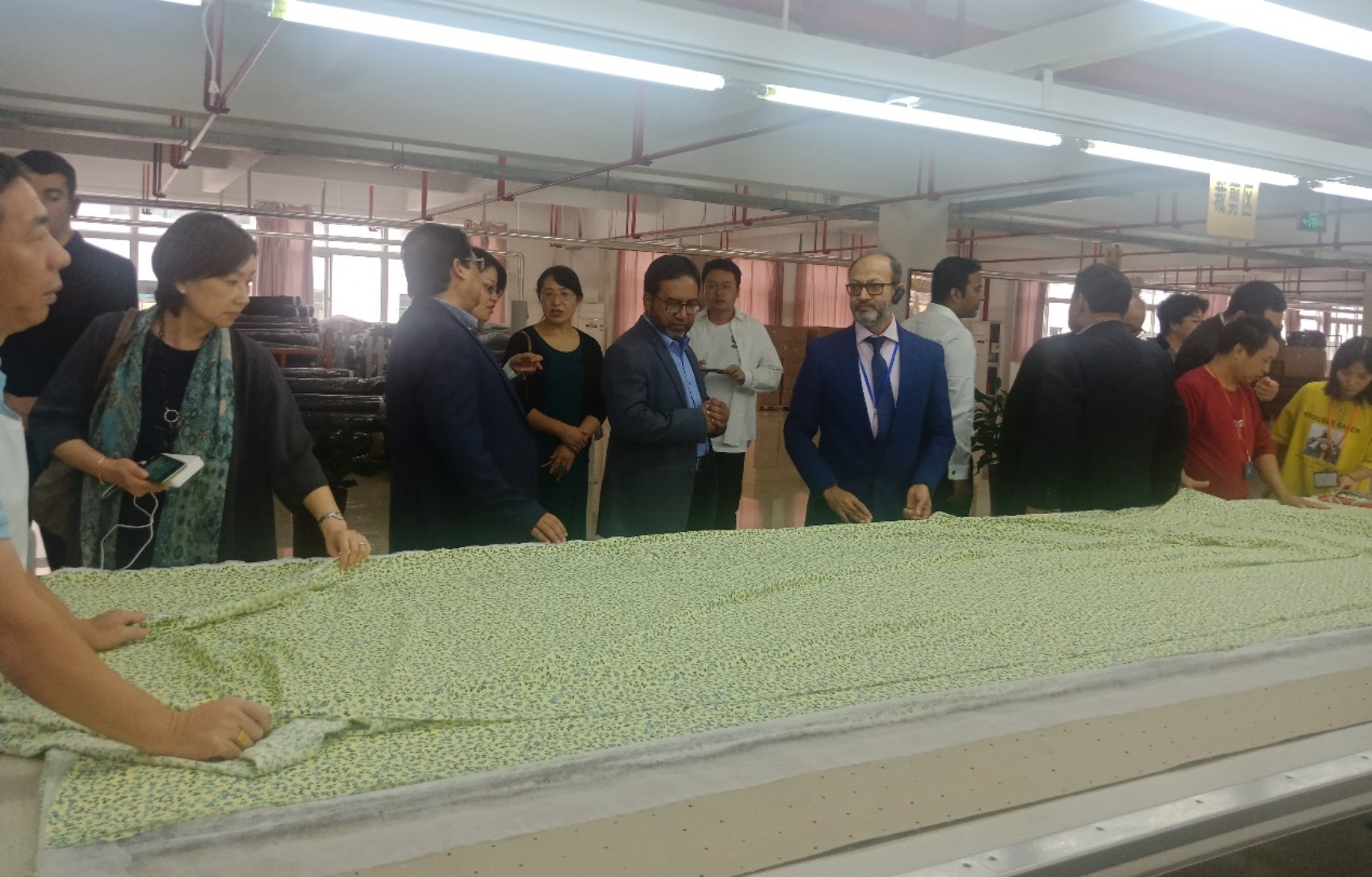
The event was hosted by CEDEP, with support from GSE, the Peking University Institute of Educational Economics, UNESCO Higher Education Chair in Asia and Pacific Region and China Education Development Strategy Society.
Platform introduction
CEDEP is an international platform jointly established by the Asian Development Bank and Peking University. The platform is dedicated to researching the successful experiences of China's education development in the past forty years of “Reform and Opening Up”, to use these successes to promote mutual development and communication exchange with other BRI countries.

